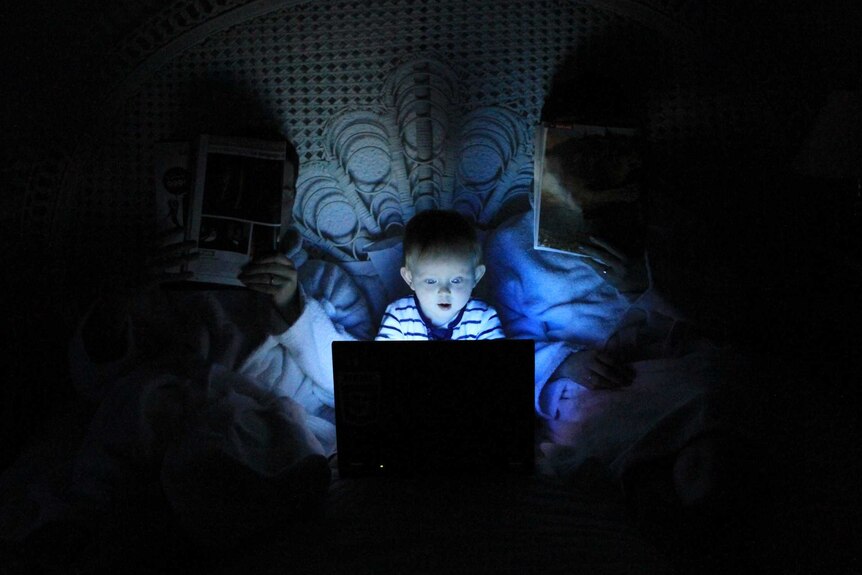In this fast-paced, technology-driven world, our minds are constantly bombarded with digital screens emitting a powerful force known as blue light. Have you ever stopped to consider how this ubiquitous light source may be affecting your precious sleep patterns? Join us on a journey through the intricate relationship between blue light and sleep, as we uncover the surprising impact this modern phenomenon has on our nightly recharge.

The Science Behind Blue Light’s Disruptive Effects on Sleep
How Blue Light Affects Your Sleep
Blue light is a type of light that is emitted from electronic devices such as smartphones, tablets, and computers. This type of light is known to suppress the production of melatonin, the hormone that regulates sleep. When exposed to blue light before bedtime, the body’s natural sleep-wake cycle is disrupted, making it harder to fall asleep and stay asleep throughout the night.
The Science Behind It
Research has shown that exposure to blue light in the evening can interfere with the body’s circadian rhythm, the internal clock that regulates sleep and wakefulness. This disruption can lead to a variety of sleep issues, including insomnia and poor sleep quality. Studies have also linked blue light exposure to an increased risk of health problems such as obesity, diabetes, and depression.
What You Can Do
- Avoid using electronic devices before bedtime.
- Use blue light blocking glasses or screen filters.
- Invest in a red or amber-hued night light for your bedroom.
- Establish a relaxing bedtime routine to signal to your body that it’s time to sleep.
Tips for Minimizing Blue Light Exposure Before Bed
Blue light exposure before bed can disrupt your circadian rhythm and negatively impact your quality of sleep. By following these tips, you can minimize your exposure to blue light and improve your sleep:
- Avoid screens: Limit your use of electronic devices such as smartphones, tablets, and computers before bedtime.
- Use night mode: Enable the night mode feature on your devices to reduce the amount of blue light emitted.
- Dim the lights: Lower the brightness of your overhead lights and use softer, warmer lighting in the evenings.
- Invest in blue light blocking glasses: Wear glasses that are designed to filter out blue light when using screens before bed.
By implementing these strategies, you can help your body produce melatonin naturally and improve your overall sleep quality. Remember, small changes in your routine can make a big difference in your sleep patterns!
Benefits of Using Blue Light Blocking Glasses for Better Sleep
Blue light emitted from screens has been found to disrupt our natural sleep-wake cycle, making it harder for us to fall asleep at night. This is where blue light blocking glasses come in to save the day! By filtering out these harmful rays, these glasses help to improve the quality of our sleep.
Some include:
- Reduced eye strain: Blue light can cause eye strain and discomfort, but wearing these glasses can help to alleviate those symptoms.
- Improved sleep quality: By reducing exposure to blue light before bed, you can enjoy a deeper and more restful sleep.
- Enhanced melatonin production: Blue light can suppress the production of melatonin, the hormone that regulates sleep, so blocking it can help to maintain optimal levels of this important chemical.
So if you find yourself struggling to fall asleep at night, consider investing in a pair of blue light blocking glasses to help improve your sleep quality and overall well-being.
Creating a Blue Light-Free Sleep Environment: Strategies and Products to Consider
In today’s digital age, exposure to blue light from electronic devices has become a common issue affecting our sleep quality. Blue light suppresses melatonin production, making it harder for us to fall asleep and stay asleep throughout the night. To combat this, creating a blue light-free sleep environment is crucial for improving our sleep hygiene. Here are some strategies and products to consider for creating an optimal sleep environment:
Strategies:
- Dim the Lights: In the evening, lower the overall brightness in your bedroom to signal to your body that it’s time to wind down.
- Limit Screen Time: Avoid using electronic devices at least an hour before bedtime to reduce exposure to blue light.
- Use Night Mode: If you must use electronic devices before bed, activate the night mode setting to filter out blue light emissions.
Products to Consider:
Creating a blue light-free sleep environment is essential for promoting restful and rejuvenating sleep. By incorporating these strategies and products into your nightly routine, you can effectively combat the negative impact of blue light on your sleep patterns. As we delve deeper into the effects of blue light on our sleep patterns, it becomes clear that our modern lifestyles may be disrupting our natural rhythm. By understanding the potential impact of blue light exposure and implementing strategies to minimize its negative effects, we can take steps towards improving our overall sleep and well-being. Remember to prioritize restful nights and invest in quality sleep to ensure a healthier and more vibrant tomorrow. Sweet dreams!
